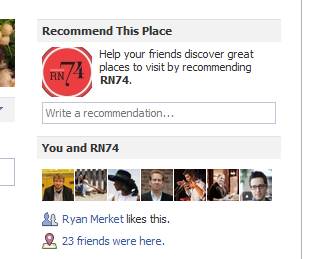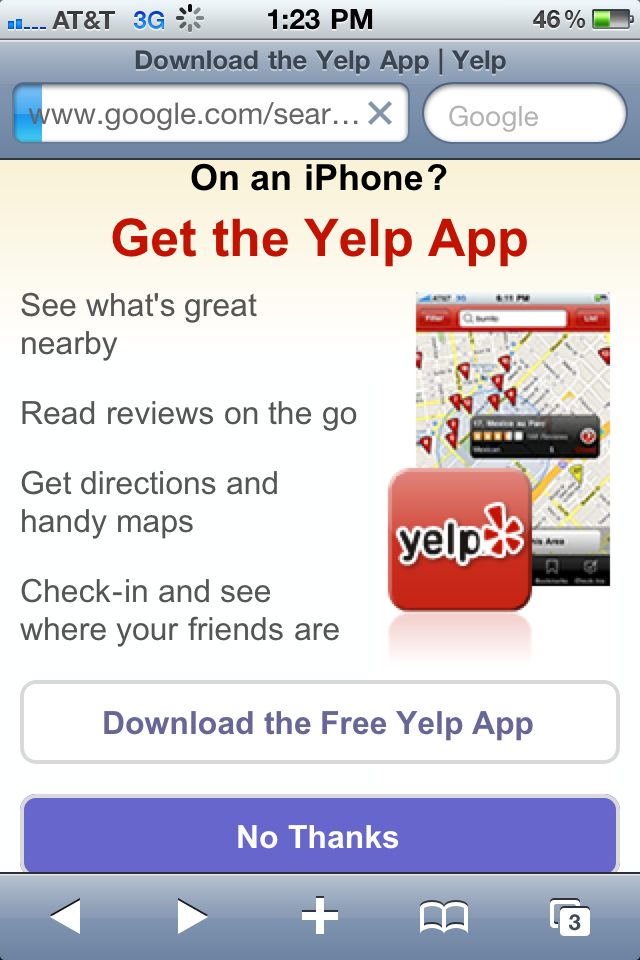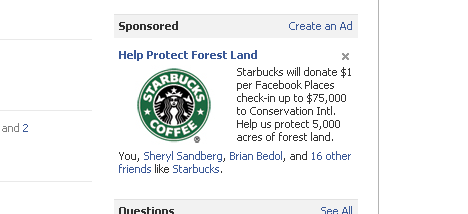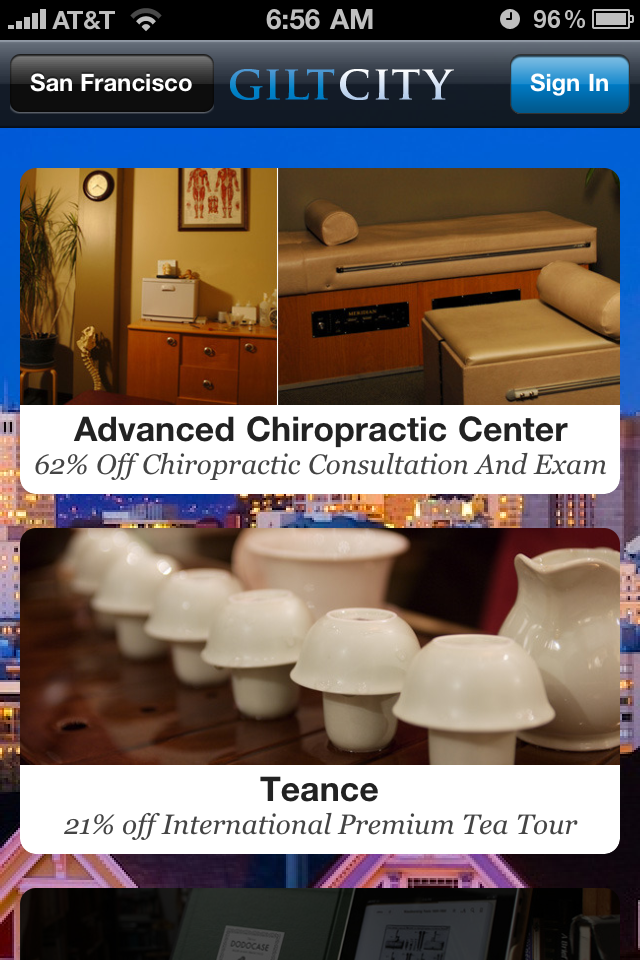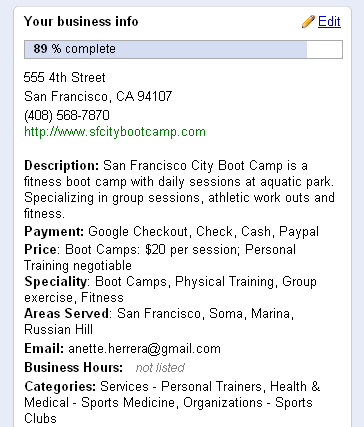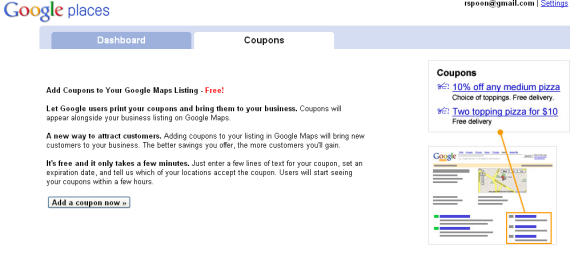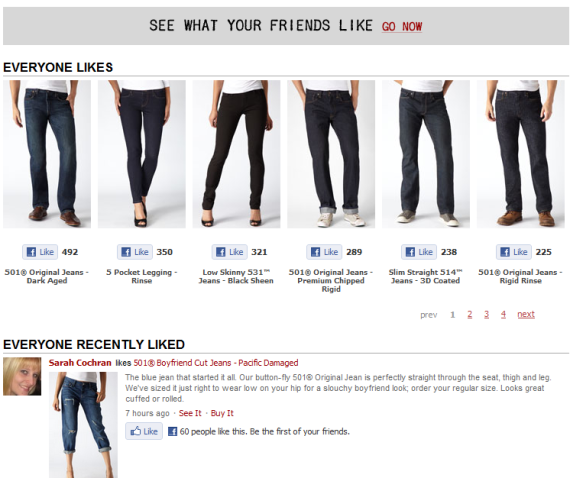More Facebook Places experimentation (is it clear enough yet that Places is gaining strategic importance?): When friends check-in to Facebook Places and the newsfeed story is posted, friends are prompted to "Add a Category" for that Place. When clicked, it asks users "What Type of Place is This?" That categorization then appears on the Place's page. With Facebook's massive user base (now 750m+), this is a powerful way to crowd-source local classifications:
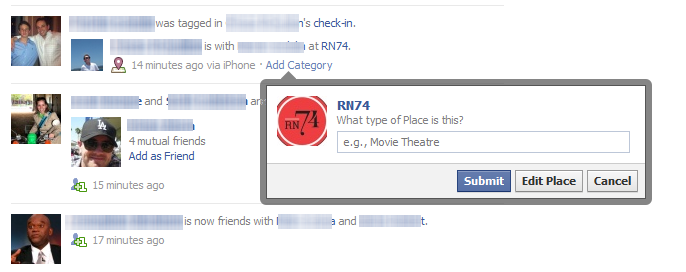
Facebook Places is also encouraging users to write reviews that are either public or shared only with your network... again, Facebook's scale and social graph should be a threat to local reviews:
